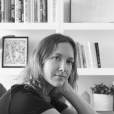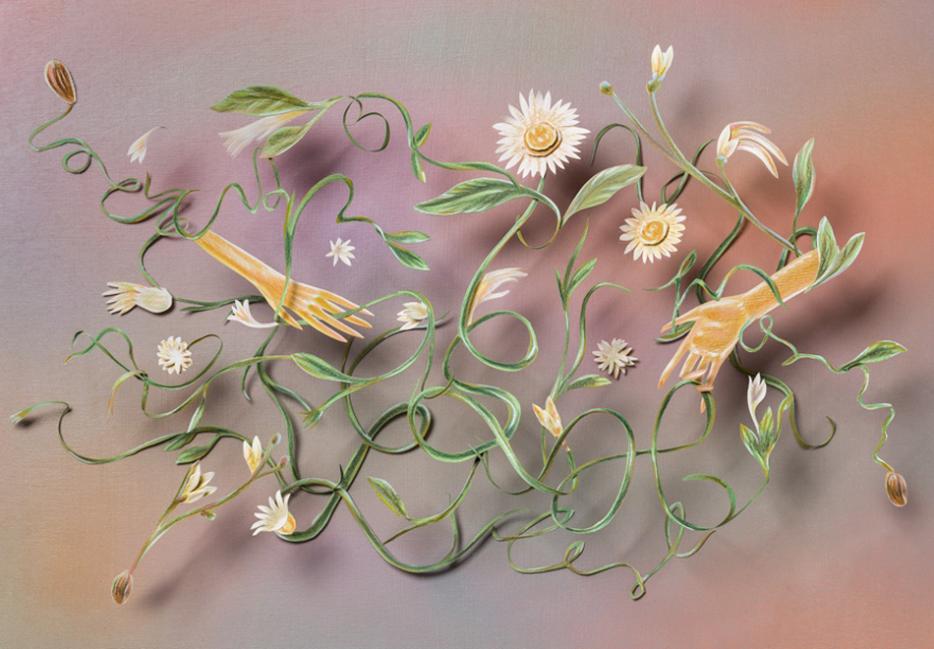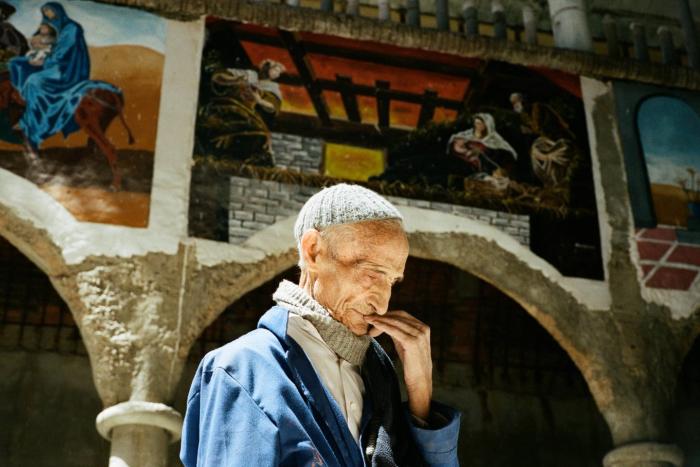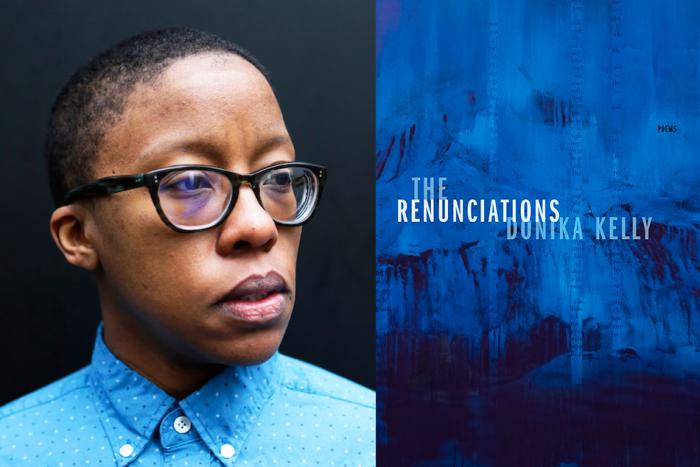Should I introduce myself? Is that a nice way to begin?
It would be good if it were simple like that. It would be good if I could say my name and not think of the dead.
My life began in memoriam, my birth marked by formative loss. I am first-named for my grandmother, Sara: she died when my mother was sixteen. And I am middle-named for my uncle, Leslie: he died when my father was thirty-two.
Two deaths. And in their wake, gaping craters. Black holes. A thick and endless abyss. Who does that make me? Was I born a conduit for my parents’ pain? Or am I a second chance?
I feel the weight of my name over my head like a hood—warm and comfortable but a little disorienting. I am constrained by the grief and by the love it represents. Ten letters so specific, I am unsure how to wear them. I am unsure where I fit in. I suppose that’s why I’m here.
~
In Neil Gaiman’s novella Coraline, the title character meets a cat, introduces herself, and asks its name. The cat replies that it does not have or need one: “Now you people have names,” it says to her. “That's because you don't know who you are.”
~
My name is someone’s past and my present and I’m not sure about the future. My name bends in the light and it gropes in the dark. My name is a blessing and it is a responsibility.
In Judaism, it is common to name a baby for a deceased loved one (though never for someone living, the custom dictates, so that the angel of death does not take the wrong person). Often, it’s just a first initial that the dead and living share, but I inherited the exactness of my relatives’ names, every letter a stamp on my identity before I had begun to form it for myself. Every letter a path.
“So much of what is transmitted between parents and families is not the obvious and the verbal and what’s said,” says Dr. Mavis Himes, clinical psychologist, psychoanalyst, and author of The Power of Names: Uncovering the Mystery of What We Are Called. “It’s also the silences.”
~
“There is a Quichua riddle: ‘El que me nombra, me rompe.’ Whatever names me, breaks me. The solution, of course, is ‘silence.’ But the truth is, anyone who knows your name can break you in two.”
—Carmen Maria Machado, In the Dream House
~
There is a letter, sent from my grandmother to one of her sisters, announcing my mother’s birth. “She has black hair and a round little face and a nose all over it,” Sara writes in long, looping scrawl that my mother says she’d recognize anywhere. “We’re just not sure of her name yet—it might be something like Trudy Beth—how does that sound?”
~
Will you do one thing for me, if you don’t mind? Will you stop reading, for a moment, and say my name out loud?
Sara
Leslie
Harowitz
How does it sound? Does it sound strong or soft as it comes off your tongue? Does it sound curious and graceful and good? Does it sound like the name of a woman you’d like to learn the intimacies of? Does it sound like the name of a woman who understands who she is?
These are things I want to know.
~
S-a-r-a. Translated from Hebrew to mean “noblewoman” or “princess.” The wife of Abraham in the Old Testament; the cornerstone matriarch of the Jewish people. Her name is more traditionally spelled S-a-r-a-h, and people often add the h to my name when they don’t know me well. A silent, seemingly harmless fifth letter, and yet it startles me every time. Don’t they know who I’m trying my best to live up to?
L-e-s-l-i-e. Gaelic, meaning “holly garden,” for whatever that’s worth. I ask my father if he knows why his parents named his brother that. He isn’t sure, but mentions that Leslie’s middle name, Errol, was chosen for his mother’s love of the actor Errol Flynn. I give Flynn a quick Google to make sure I have the spelling right; it turns out his middle name is Leslie. Errol Leslie Thomson Flynn. One of his films is called Escape Me Never.
~
“After years of my pleading, my mother finally gave me her yellow gold ‘D’ ring that was passed down to her from her mother. Daisy, Dulcie, Dolores, and now Durga. The ring’s band is thinning so I don’t wear it often but when I do, I feel the clout of family. Few things yield such command. I’m from somewhere! And these women had something to do with it!”
—Durga Chew-Bose, “How I Learned to Stop Erasing Myself”
~
I understand that naming a baby is not an easy or quick thing. It’s not like picking the paint colour for the nursery, which can be covered with a new hue in a single cumbersome weekend. A name is permanent. A name goes on paperwork. A name is how a child first finds their place in the world. It cannot be hidden with a roller brush.
It took social justice professor Minelle Mahtani and her husband two weeks after the birth of their son to choose his name. “I see now that passing on a specific part of my family legacy matters to me, not just a vague gesture to my heritage,” she writes in her essay, “What’s in a Name?” for This Magazine. They eventually decided that, bucking Western tradition, their son would be given the last name Mahtani, honouring the lineage of Minelle’s father.
Whether we like it or not, our names do define us. On a superficial and stereotypical level, they tell people who we are—or at least, who they think we are. Name signalling is when a person’s moniker signifies their religion, race, or socioeconomic status; our names can also affect our ability to find a job or a romantic partner, thanks to what is referred to as name bias. There is even research suggesting that over time, our names can affect our physical appearances.
A 2006 University of Michigan study found that a person’s satisfaction with their first name directly related to their sense of self-worth. “The link between first name and identity appears consistent,” co-authors Jean M. Twenge and Melvin Manis write. “What you think of your name has something to do with what you think of yourself.”
I don’t mean to suggest that I dislike my name. Not at all. I love the simplicity and evenness of Sara. I love that Leslie is wispy and genderless. I love these names individually, but I love them especially when they’re together. Because that’s how they feel most like they’re mine.
~
Nomen est omen / name is destiny
~
I know that my name comes from sweetness and from tenderness. Still, in the quiet, these legends hover. I know I am lucky to have my name, but worthy of it I’m not so sure.
Himes asks me a question that sticks: “What has been your relationship with your name?”
What has been my relationship with my name? Maybe a better question is: what has been my relationship with my grandmother and with my uncle? Can I get to know them now? The mere fact that I am named for their memories means it’s too late. But I’m trying to find them in the stories. I’m trying to understand.
So, I suppose, my relationship with my name makes me sad. Because my name means my parents’ grief.
Call me Cheryl instead. Call me Michael. I don’t care. Call me anything else if it means Sara and Leslie didn’t die so soon. If it means I had the chance to meet them. If it means I can know the sounds of their voices and what it was like to make them laugh and how they walked into a room. If it means saving my mother and father from that pain. I’d do it. I’d give my name away for that.
~
Sara Shirley Sheckter. Born in 1918 in Vegreville, Alberta, the fourth oldest of a now-unheard-of ten kids. Named in honour of her paternal grandmother, Sora. A devoted daughter who grew up working in her father’s bakery. Good with her hands. Meticulous.
Sara had short but thick black hair, delicate lips, a warm smile that revealed a set of false teeth (the flour from the bakery, she claimed, rotted her real ones). When I look at photographs of her in her later years, I am ashamed to say I don’t recognize her. But when I look at images of her in her youth, I see traces of my mother. Same eyes, same nose. I wonder if they are my eyes and my nose, too.
For most of my mother’s life growing up in St. Catherines, Ontario, Sara was sick. She contracted a virus in her heart muscle that caused the organ to fibrillate, which in turn led to cardiac arrests; her children lived in fear that one wrong move would trigger a fatal attack. Every day, my mother would rush home from school and yell for Sara. Was she still there? Was she still flesh and soul and bone?
Sara was an avid and skilled sewer, often making my mother’s outfits—outfits for her Barbies, even. Frilly, detailed numbers with lace and sequins. She also sewed aprons for a local community organization and for my mom’s dance recitals; Sara loved to dance and put her two daughters in classes from when they were small. My own mother forced me to take dance lessons when I was little; I hated it at first, but after a few attempts, the aversion grew into adoration. Now I understand why it mattered to her so much.
Sara collected stamps. Many weekends, she’d tote my mother—only seven or eight years old—to the Welland Canal in the Niagara Region and ask disembarking sailors if they had any stamps from faraway places that they’d be willing to part with. She would offer to take them to Niagara Falls in return. “I would be sitting,” my mother recalls, “in the backseat with a sailor.”
Sara baked. She’d make cheese rolls, sugar nothings, even delicate icing roses placed gingerly on top of cakes. My aunt Karen, a few years older than my mother, was usually tasked with standing at the stove and stirring the custard for Sara’s lemon meringue pie; despite her best tries, Karen burnt it every time. She can’t eat the dessert to this day.
Sara also loved to be social and to entertain. “She was a one-woman welcome committee,” Karen says. As she got sicker, it became harder for her to live the life she wanted. It made her demand more of her family—to excel at the things she could not.
Sara died of a heart attack at age fifty-two. At the time, my mother was visiting Karen, who was working at a Gulf Island summer camp. My dad happened to be working there that year, as well. He went to Sara’s shiva—the Jewish period of mourning after a funeral—out of support for his colleague. It wasn’t until years later that he met my mom; still, it comforts me to know that they were together that day.
I cannot tell yet if Sara and I are alike in any significant ways. I don’t have a fondness for baking; I was never good at crafts. Perhaps our personalities do not converge. But in my name, on paper, I become her.
“If I see Sara without an h, I go, ‘That’s my mother’s name,’” my own mother says. “The spelling of your name always does that. Every time.”
~
Leslie Errol Harowitz. Born in 1942 in Vancouver, B.C. One of four kids. A romantic, a prankster; he would go to the ends of the earth for a joke. No punchline was too far-fetched. No party was too elaborate.
He had kind, squinty eyes; a round face; large, nerdy glasses that would probably be considered cool now; a happy, crooked smile. Looking at his picture, I see a hint of mischief that reminds me of my father.
Leslie was a klutz, not much of a sportsman, but great with words (just don’t try to decipher his printing). He liked to construct silly contraptions—one famously called Bite Da Mama was engineered with wind-up toy dentures to annoy his mother by nipping her in the arm—and had nicknames for everybody; my father’s was Baby Bowie. Leslie teased relentlessly, but as is the case with so many jesters, the more he ridiculed you, the more he liked you.
Leslie was generous, in particular with his time. When he was a law student at the University of British Columbia, he took it upon himself to help my father—ten years his junior—improve his writing skills. “I’d have weekly assignments. He would give me a topic and I’d have to write two or three pages,” my father recalls. “And then he would edit it and mark it up, and we would sit down and discuss it. I’d take it back and have to do a second draft and then maybe a third draft, and then we’d move on to another assignment.” My dad’s grade eight English teacher went from being on his case about poor performance to reading his assignments aloud for the class. I’m warmed by this. The love of words that I share with my father: it came from Leslie.
Leslie was fiercely loyal, led by his principles, and fancied himself a handyman—though the stories say otherwise. One day, when they were both adults living in their own homes in Vancouver, my father got a call from his brother. “You have to come over right away,” Leslie said calmly. “I’ve had a bit of an accident.” My father whipped over to his house to find Leslie with a board of wood nailed to his thumb. He had been taking down the family’s sukkah—a temporary hut built for the Jewish holiday of Sukkot—pulling apart wooden beams this way and that, and one of them, it seemed, bent but didn’t fully disconnect from the structure; when it swung back into place, its nail went right through his finger.
Leslie opened his own law firm with two colleagues, but no matter how well they did, he never felt comfortable in his success. And according to his widow, my aunt Sharon, he was never really in love with his work: “He always said, ‘Nobody in law likes law.’”
Leslie’s taste for elaborate schemes never faded, though, nor did his impressive ability to run late for absolutely everything. He had a yellow Chevy convertible that he loved, but as my father puts it, “it didn’t always love him back.” When he was feeling uncomfortable, his right eyebrow twitched.
Leslie was also a hypochondriac, and it made him fearful that he’d die young, leaving his wife and three daughters behind. He was forty-three when a heart attack killed him, caused by a condition savagely referred to as the widow-maker.
Leslie would have loved me, my father says. I suppose it’s not hard to believe; we were family. But what would he think of my writing? And how would he feel knowing I carry part of his identity in mine? Would he think I’m doing a good job? I ask my father why I was given Leslie’s name. “I guess,” he says, “because he was just a hole in our life.”
~
There is another letter, this one written by one of Sara’s sisters to her kids, documenting various family milestones. In it, she mentions the birth of a cousin named Faigie—another prominent moniker in the family. “She will perpetuate the name of her two grandmothers,” she writes. “Life is eternal.”
~
I come back to the question: what has been my relationship with my name? It is one of honour and healing. I hold it tight, even when it hurts.
“You lighten the burden of your past, but you can’t eliminate it,” Himes tells me. “You can’t erase your name.”
I don’t want to erase it. I want to know it. I want to trace the lines of its curves, over and over again.
~
When I sit down with Sharon to learn about Leslie, I ask her: who was I named after? Do I live up to his memory? Do I live up to my own name?
Her face is a mixture of pleasure and surprise. “Your middle name is Leslie?” she asks. Surely she knew, but somewhere along the way, among the everyday muck, amidst the heartbreak and the joy and the mishugas, she forgot. “Yes,” I say. Yes.
“Sara. Leslie. Harowitz,” she announces, and hearing her say it makes me want to cry. Each syllable like a warm tear down my cheek; their streaks are invisible but I feel them just the same.
“That’s me,” I say. At least, a version of me. A version of me I’m interested in becoming. A version of me who lives softly in the margins but also brightly in the open. A version of me who is proud of her name, even if she doesn’t fully understand its legacy yet. A version of me who carries her ancestors in blood and in documentation and maybe that’s enough.
~
Will you do one last thing for me? Will you say my name out loud again?
Sara
Leslie
Harowitz
How does it sound?
I’m getting closer to answering that on my own. To feeling like this narrative is really mine.
~
I think I should introduce myself. I think that is a nice way to end.






